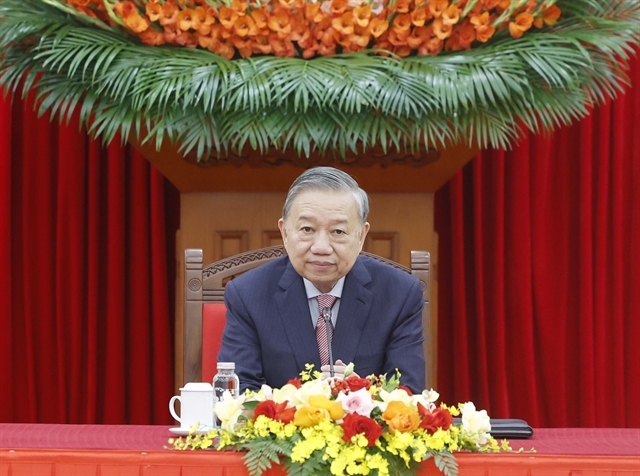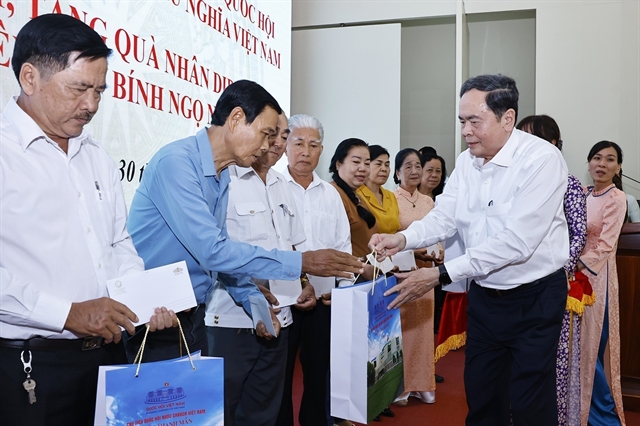 Features
Features

The genomes of over 1,000 people have been analysed to form a gene database that will serve medical research and practices for the first time in Việt Nam
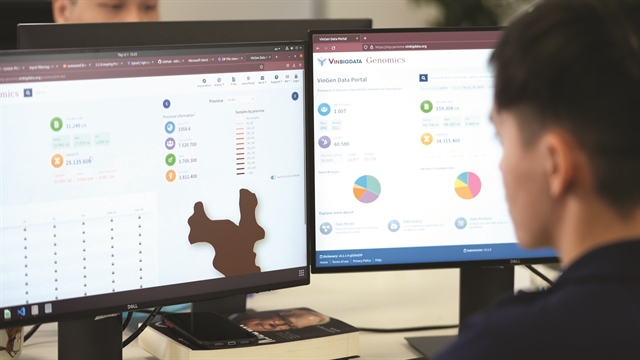
|
| Information on the genomes of over 1,000 healthy people has been used to form a gene database exclusively for the Vietnamese. Photos courtesy of VinBigData |
Bảo Hoa
The genomes of over 1,000 people have been analysed to form a gene database that will serve medical research and practices for the first time in Việt Nam.
The project by VinBigData sets out to help with the diagnosis and treatment of genetic diseases, and provide data for the application of precision medicine in the country.
It also aims to establish a gene database for the Vietnamese, according to Dr Vũ Văn Hà, VinBigData scientific director.
“This is the first time the scientific community in Việt Nam will have a credible reference system exclusively for Vietnamese people that can serve biomedical research,” he said.
“Around the world there have been huge databases contributed by several genome sequencing projects for several ethnic groups, but none for the Vietnamese. So this project is expected to fill in this gap and help to enrich and diversify the region’s and the world’s databases, from which more valuable scientific perspectives will be formed.”
Data on the genomes of healthy Vietnamese people is crucial to the treatment of genetic diseases often found in the Vietnamese, according to Dr Lê Thị Thanh Hương, the project’s development specialist. It will serve as a foundation for doctors to decide whether a gene variant causes a disease in a patient.
“Some gene variants in, for example, the European population, may pose risks and cause diseases, but for the Vietnamese population they may be not even harmful. So to decide whether or not a gene variant causes a disease in a person, doctors need to refer it to the genome of a healthy person," she said:
“That’s a very important thing our project has done – creating a reference system of healthy, purely Vietnamese genomes.”
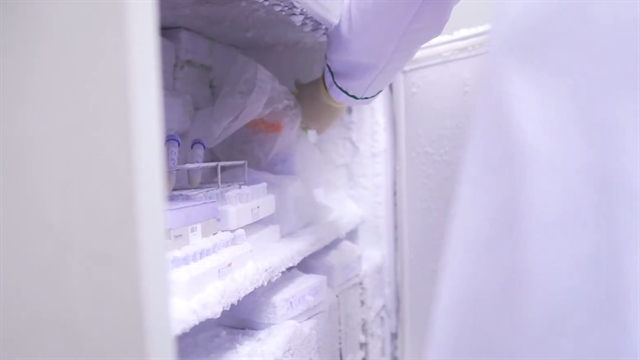
|
| DNA samples are stored at VinMec International Hospital in Hà Nội. |
The project took three years to complete, from December 2018 to December 2021. The genome database is the largest of its kind in Việt Nam.
“Previous projects analysed only dozens of samples, hundreds at the highest,” said Dr Võ Sỹ Nam, director of VinBigData Biomedical Information Centre. “For this project, we analysed over 1,000 whole genomes of Vietnamese people.”
“All stages, including analysing, sampling, sequencing, were all done in Việt Nam, with the same level of accuracy achieved with the latest technology elsewhere in the world.”
The gene samples were taken randomly, but people who took part in the projects were asked to answer a screening questionnaire in advance to make sure three generations in their families, including their own, were all healthy.
After being collected, the samples were transferred to and stored at VinMec International Hospital, where researchers examined the DNA breaks and conserved sequences. This process was carried out with the next-generation sequencing technique, which can analyse millions of DNA sequences at once.
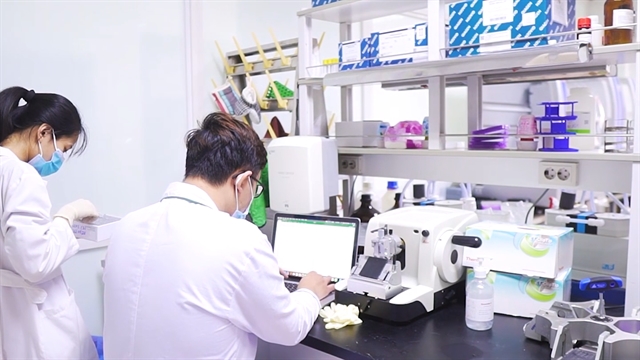
|
| Researchers process DNA samples with next-generation sequencing techniques. |
More than 40 million genetic variants were detected during the process, including nearly 2 million common and unique genetic variants of the Vietnamese population.
“This will serve as a great foundation for medical genetics, but only if doctors know how to take advantage of it,” said Dr Robert Green from Harvard Medical School.
“Implementation, taking this information and integrating it into the day-to-day practice of medicine, is very hard. Primary care doctors, even specialists, don’t always know what to do with it. It can be overinterpreted and lead to inappropriate actions. It can be under interpreted and simply be confusing.
“So this is the challenge of education, this is the challenge of communication, this is the challenge of how you present a report to a provider who is not necessarily an expert in genomics. And this is another one of the areas that I’ve been privileged to help VinBigData as we work through some of these problems together.”
The data has been made accessible to not only medical professionals but all people on VinBigData's portal.
“We aim to bring the results of this research closer to the people at affordable costs, and the information will not only be scientifically accurate but also simplified, making it easy for people to understand and apply,” said Nguyễn Đức Long, VinBigData chief technology officer.
“In terms of future research, we aim to do more on topics closely related to the Vietnamese, such as to explain the correlation between genes and diseases often found in Vietnamese people like diabetes, gout, colorectal cancer and lung cancer.” VNS



